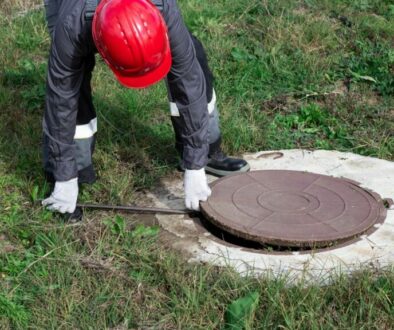How To Become A Prison Guard?
Prison guards play a vital role in ensuring that correctional facilities operate safely and efficiently. If you have ever considered a career in law enforcement, working as a prison guard may be an excellent option. In this article, we will discuss the steps to becoming a prison guard, the skills needed for the job, what a prison guard does, and the various benefits of working in this field.
Steps To Becoming A Prison Guard
Becoming a prison guard is a challenging but rewarding career path. As a prison guard, you will be responsible for maintaining order and safety within a correctional facility. Here are some additional details to consider before pursuing this career:
Prison guards work long hours, often in shifts that include nights, weekends, and holidays.
Correctional facilities can be dangerous environments, and prison guards must be prepared to handle potentially violent situations.
Prison guards must have excellent communication skills and be able to interact with inmates from diverse backgrounds.
Once you have decided that becoming a prison guard is the right career path for you, here are the steps you need to take:
- Complete A Training Program
The first step in becoming a prison guard is to complete a training program. These programs are typically offered by state or local governments and cover topics such as inmate management, communication, and ethics. In some cases, you may be required to complete a certain number of hours of training before you can begin working in a correctional facility.
During your training, you will learn about the policies and procedures of the facility where you will be working. You will also receive hands-on training in areas such as self-defense and crisis management. - Pass A Background Check
Before you can become a prison guard, you will need to undergo a thorough background check. This check will include a criminal history check, a credit check, and a review of your employment history.
It is important to note that having a criminal record does not necessarily disqualify you from becoming a prison guard. However, certain types of criminal convictions may make it difficult for you to obtain a job in this field. - Pass A Physical Exam
Being a prison guard is a physically demanding job that requires you to be in good health. As such, most states require you to pass a medical exam that covers both physical and mental health.
The physical exam will assess your overall health and fitness, as well as your ability to perform the duties of a prison guard. This may include tests of your strength, endurance, and agility. - Obtain Any Required Licenses/Certifications
Depending on the state or facility you will be working in, you may be required to obtain certain licenses or certifications. For example, some states require prison guards to have a valid driver’s license.
In addition, some states require prison guards to complete ongoing training to maintain their licenses or certifications. This training may cover topics such as new policies and procedures, new technologies, and new safety protocols.
Overall, becoming a prison guard requires dedication, hard work, and a commitment to public safety. If you are up for the challenge, this can be a rewarding career path that offers opportunities for advancement and personal growth.
Skills Needed For Becoming A Prison Guard
Working as a prison guard is not an easy job. It requires a lot of patience, physical fitness, and mental strength. Prison guards are responsible for maintaining order and ensuring the safety of inmates and staff members. Here are some of the most critical skills needed for becoming a prison guard:
1. Good Communication Skills
As a prison guard, you will be dealing with people from all walks of life. You need to be able to communicate with them effectively, regardless of their background or level of education. You will need to be able to explain rules and procedures clearly and answer questions from inmates. Good communication skills are essential for keeping the facility running smoothly and preventing conflicts.
Moreover, prison guards must also be able to communicate with fellow staff members and supervisors. They need to be able to work as part of a team and follow instructions from their superiors.
2. Physical Fitness
Being a prison guard is a physically demanding job that requires you to be in good shape. You may need to run after or subdue violent inmates at a moment’s notice. You will also need to be able to stand for long periods and perform tasks that require physical strength, such as carrying heavy objects or climbing stairs.
Prison guards must also be able to pass physical fitness tests before being hired. These tests may include running, push-ups, and sit-ups.
3. Attention To Detail
Prison guards need to pay close attention to their surroundings at all times. They need to be vigilant for signs of trouble, such as inmates attempting to smuggle contraband into the facility. They also need to be able to spot potential security risks, such as broken locks or windows.
Moreover, attention to detail is also vital when it comes to paperwork and record-keeping. Prison guards need to keep accurate records of inmate activities, disciplinary actions, and other incidents that occur in the facility.
4. Empathy and Compassion
Although prison guards are responsible for maintaining order and enforcing rules, they also need to be able to show empathy and compassion towards inmates. Many inmates have had difficult lives and may be struggling with mental health issues or addiction. Prison guards need to be able to recognize and respond to these issues in a sensitive and appropriate manner.
Moreover, empathy and compassion are also essential for preventing conflicts and building positive relationships with inmates. When inmates feel that they are being treated fairly and with respect, they are more likely to follow the rules and cooperate with staff members.
Working as a prison guard can be a challenging and rewarding career. By developing these critical skills, you can help ensure the safety and security of inmates and staff members while also making a positive difference in the lives of those in your care.
What is a Prison Guard?
Prison guards are an essential part of the criminal justice system. They work in a high-stress environment where they must be constantly vigilant. They are responsible for the custody and care of inmates who have been convicted of crimes. Their job is to maintain discipline and order within the prison and to ensure that inmates are treated fairly and humanely.
Prison guards are required to have a high level of physical fitness and mental toughness. They must be able to handle difficult and dangerous situations, and they must be able to remain calm under pressure. They are trained in self-defense and are equipped with weapons such as batons, pepper spray, and firearms.
Prison guards must also be skilled in communication and conflict resolution. They must be able to de-escalate tense situations and resolve conflicts between inmates. They must also be able to communicate effectively with other staff members and with inmates who may have different cultural backgrounds or speak different languages.
In addition to their primary duties, prison guards also perform a variety of other tasks. They conduct searches of inmates and their cells to prevent the smuggling of contraband such as drugs, weapons, and cell phones. They also escort inmates to court appearances, medical appointments, and other off-site locations.
Prison guards play a critical role in the criminal justice system. They help to keep our communities safe by ensuring that dangerous criminals are securely confined. They also help to rehabilitate inmates by providing them with education and job training programs. Without prison guards, our correctional facilities would be chaotic and dangerous places.
The Benefits of Working as A Prison Guard
Despite the challenging nature of the job, working as a prison guard comes with several benefits. These include:
1. Good Pay
The salary of a prison guard varies depending on the state and facility they work in. However, many facilities offer competitive wages and benefits packages. According to the Bureau of Labor Statistics, the median annual salary for correctional officers and jailers was $47,440 in May 2020. This is higher than the median annual wage for all occupations, which was $41,950. Additionally, many facilities offer overtime pay and hazard pay for working in dangerous situations.
2. Job Security
Prison guards are in high demand, and the job outlook for this profession is excellent. Once you become a prison guard, you are likely to have a secure job with excellent benefits. The Bureau of Labor Statistics projects that employment of correctional officers and jailers will grow 3 percent from 2019 to 2029, about as fast as the average for all occupations. This growth is due to the need to replace workers who leave the occupation and to accommodate a growing inmate population.
3. Opportunities For Advancement
Working as a prison guard can lead to opportunities for advancement within the correctional system. You may be able to move up to supervisory or managerial roles within the facility or switch to a related field such as probation or parole. Some facilities offer training programs for advancement, and some states require correctional officers to have a certain level of education or experience to advance to higher positions.
4. Sense of Fulfillment
Despite the challenges that come with working as a prison guard, many people find the job rewarding. Being able to help inmates turn their lives around or prevent them from committing further crimes can be incredibly fulfilling. Many facilities offer programs that allow inmates to receive an education or learn a trade, and prison guards can play a crucial role in facilitating these programs. Additionally, prison guards can provide support and guidance to inmates who may be struggling with mental health issues or addiction.
Working as a prison guard may be a challenging job, but it comes with several benefits. These include good pay, job security, opportunities for advancement, and a sense of fulfillment. If you are interested in a career in law enforcement and want to make a difference in the lives of others, working as a prison guard may be the right choice for you.
Becoming a prison guard can be a fulfilling and gratifying career choice for those interested in working in law enforcement. However, it requires dedication, hard work, and specific skills. By following the steps outlined in this article and developing the necessary skills, you can become a successful prison guard and contribute to the safety and security of correctional facilities.




